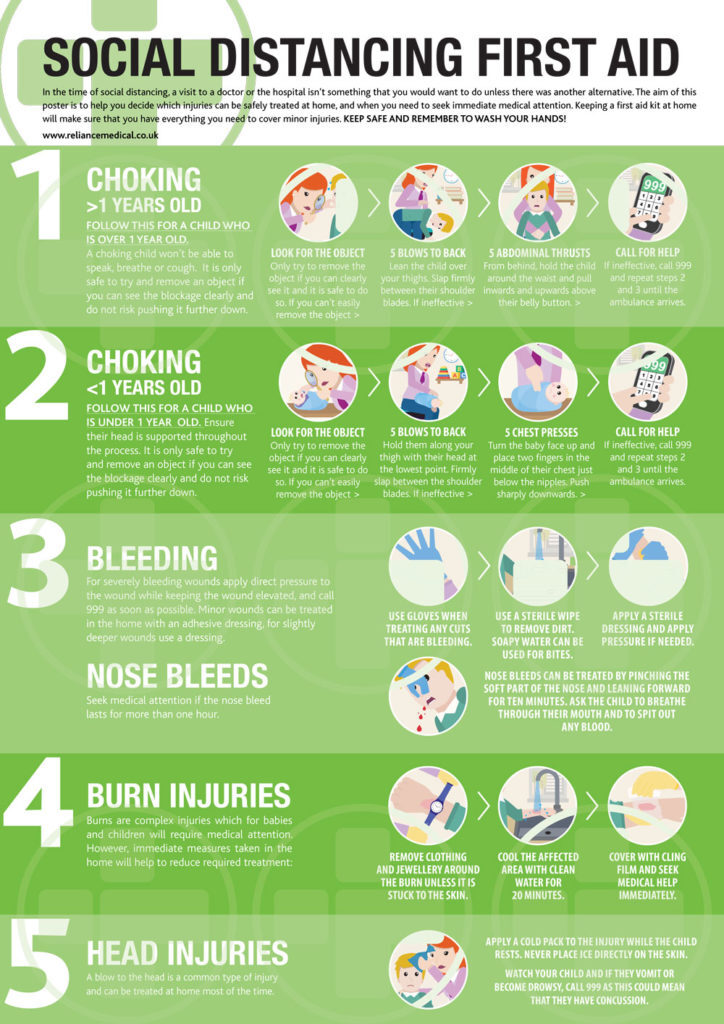Did you know? The British Red Cross claims that only 5% of adults have the skills and confidence to provide first aid in emergencies.

With each passing day, the UK population is having to adapt to changes in their lifestyle and working patterns which two weeks ago would have seemed implausible. Families are sitting around dining tables balancing the demands of home-schooling and entertaining children while trying to maintain their incomes amidst a global healthcare and economic crisis.
As government policy becomes increasingly stringent, recommendations on social distancing have been consistent from the outset. Hospitality and leisure businesses have undoubtedly been the hardest hit, but the effects are now clearly being felt in every sector. Millions of service industry workers, supported with modern IT infrastructures and cloud-based data systems, are quickly having to come to terms with the new realities of working from home. This rapid paradigm shift, combined with the implications of the Coronavirus Bill, poses interesting and complex challenges about the role of first aid at home concerning managing the increased burden on the NHS, lowering the transmission rate of the virus for an extended period, and correspondingly, adjusting practices within the workplace health and safety regulatory system.
Data published by the NHS shows that in the financial year 2018-19, there were 24.8 million Accident and Emergency attendances throughout the UK. Even with NHS contingency planning, this is a number that public servants and healthcare professionals need to see reduced if they are to stand a chance of managing anything close to the levels of confirmed COVID-19 critical care patients currently being seen in Southern Europe. Public Health Profiles in England indicate that of all Accident and Emergency attendances, approximately 20% are patients under the age of 18, with intentional or unintentional injuries in the home being a significant driver for these statistics.
With UK schools closing their gates on March 20th, it could be presumed that increased time spent in the home may have a directly proportionate impact on the number of children requiring similar treatment. Enabling guardians and parents in this current climate to effectively treat minor injuries in the home and reduce the need for emergency care, could potentially have a positive effect of lessening the burden the NHS will face over the coming weeks and months.
To support this initiative, Reliance Medical has introduced a first aid guidance poster for those currently working from home or in self-isolation. You can download the poster here
Sources: https://www.reliancemedical.co.uk/
